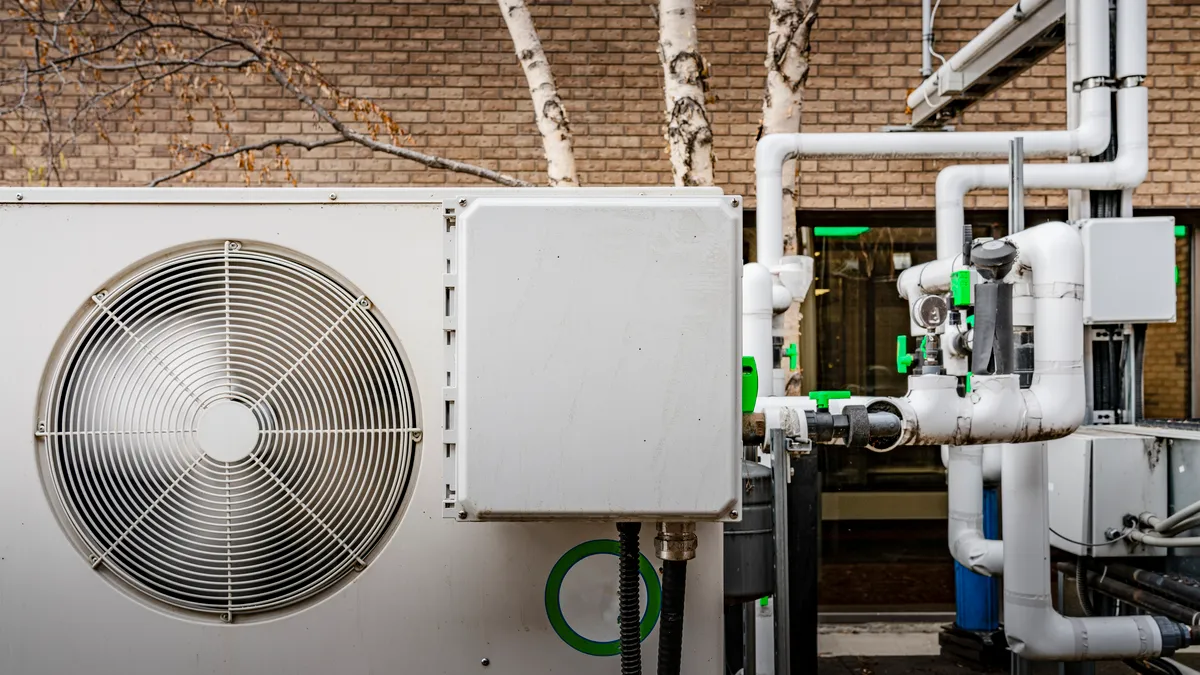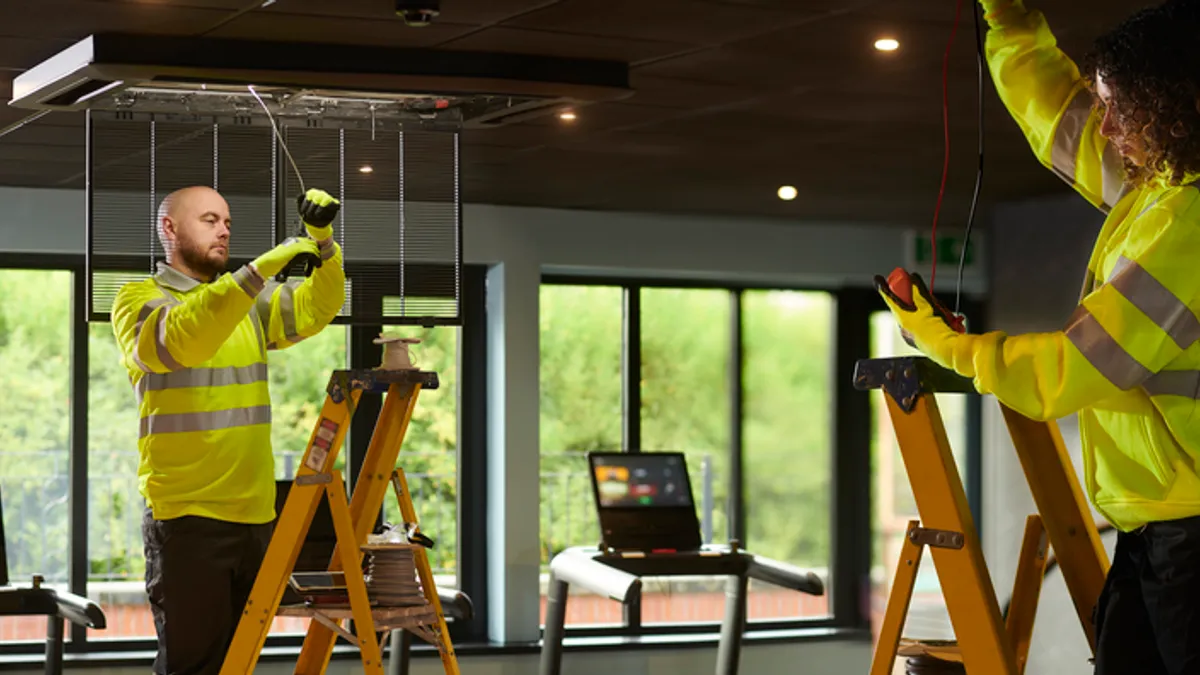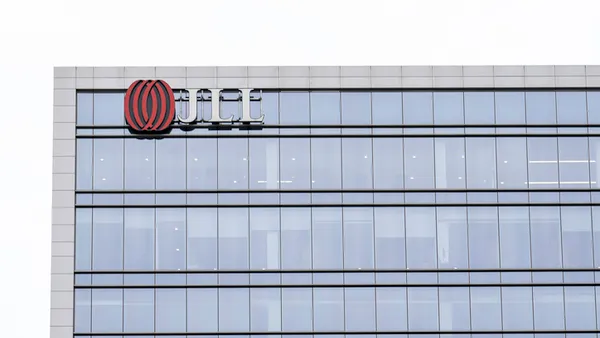Dive Brief:
- Bedrock Energy has secured $8.5 million in seed capital to ramp up the production and implementation of technologies designed to facilitate net zero operations for real estate properties.
- The technology stack Bedrock is developing combines autonomous drilling and advanced subsurface modeling to triple the speed and space-efficiency of geothermal HVAC systems, the startup said in an Oct. 11 news release.
- Real estate owners and investors can recoup their investments in decarbonization measures for large properties in less than five years, Bedrock said.
Dive Insight:
Despite the energy efficiency of geothermal heat pumps, their adoption has historically been low due to concerns about upfront costs, as well as the time and space required to construct “the borefields that provide such stellar thermal efficiency,” Bedrock Energy’s co-founder and CEO, Joselyn Lai, stated in the release.
The company says benefits of its technology include geothermal HVAC units that can fit into dense, urban locations via sensors that validate real-time construction accuracy.
Costs and the return on investment from heat pump projects can hold back electrification efforts, particularly when local grids lack the capacity to meet those needs, according to Mike Kazmierczak, vice president of Schneider Electric’s digital energy decarbonization office. “We need to create headroom [by] right-sizing the systems we’re going to need, both on the heat side and on the grid side,” Kazmierczak said in an interview.
Federal incentives like the Energy Investment Tax Credit and the Modified Accelerated Cost Recovery System can significantly offset upfront costs of geothermal heat pumps. The ITC, available for businesses that install geothermal heat pumps, covers both equipment and installation expenses by providing a tax credit of 30% for systems constructed before Jan. 1, 2033. That credit reduces to 26% in 2033 and 22% in 2034.
MACRS allows businesses installing geothermal heat pump systems to recoup investments through depreciation deductions for a five-year period. In the first year, businesses can elect to claim a bonus depreciation set at 80% for qualified properties.This means companies can deduct 80% of the entire cost of the system, minus 50% of the ITC deduction, according to plumbing and mechanical trade publication PM Engineer, which notes that this provision is scheduled to drop to 60% in 2024 and to 0% by 2027.
“A huge swath of commercial and industrial real estate can now benefit economically from carbon-free geothermal HVAC,” Lai said in the release, pointing to speed, cost, compactness and reliability as factors that can make adopting these heat pumps a “logical business and sustainability decision.”
Wireframe Ventures took the lead in the financing round, with contributions from Overture Climate VC, Long Journey Ventures, Cantos, Toba Capital, First Star Ventures, Divergent Capita and Climate Capital, according to the release.














